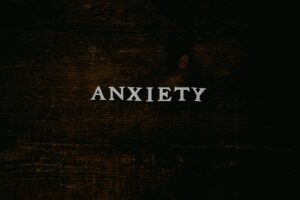Chronic anxiety can create physical and emotional issues if not controlled. But events, tragedies, worries, and loss are a part of life. You cannot shield yourself from everything that feels uncomfortable or stressful, but you can lessen the effects. You need to know how to reduce anxiety for the rest of your life.
How to reduce anxiety with lifestyle changes
 High blood pressure, high cholesterol, heart disease, type 2 diabetes, and obesity can develop over time from chronic anxiety. Although you can learn more about how to stop a panic attack and lower stress levels in just minutes, the best way to alleviate anxiety is to make lifestyle changes.
High blood pressure, high cholesterol, heart disease, type 2 diabetes, and obesity can develop over time from chronic anxiety. Although you can learn more about how to stop a panic attack and lower stress levels in just minutes, the best way to alleviate anxiety is to make lifestyle changes.
Lifestyle changes mean analyzing and revamping your habits. Bad habits can worsen anxiety and stress. For example, your nervous system reacts to substances such as caffeine, sugar, medications, and illegal drugs. After consuming these substances, you might feel jittery or sluggish and experience inflammation and rapid heart rate.
If you suffer from chronic anxiety, your anxiety levels will rise dramatically when compounded with these substances. Knowing how to reduce anxiety starts with changing your habits.
Prioritize exercise
Daily exercise is a lifestyle change that can immediately affect your stress. Exercise is the first step in reducing anxiety. When you work out, your cardiovascular system works harder to pump blood and oxygen to your lungs and heart. The body releases endorphins that give you a sense of well-being and happiness. Exercise boosts your confidence and self-esteem.
If your anxiety is behind your high blood pressure, you might notice that your systolic and diastolic numbers drop, and your resting heart rate decreases a few hours after exercising. Exercise is one of those tasks you must do every day in some form to reap the daily benefits. Try various workouts throughout the week, like walking, lifting weights, dancing, and bicycling.
Overhaul your diet
Sugar, processed foods, junk food, simple carbohydrates, energy drinks, and overcaffeinated beverages can worsen anxiety symptoms. The parasympathetic nervous and sympathetic nervous systems are sensitive to these substances. The sympathetic nervous system activates the fight-or-flight response, and certain foods trigger this response. It is like having the fight or flight response button stuck on all day.
To activate the sympathetic system instead, overhaul your diet to calm your heart rate. Eat lean proteins, complex carbohydrates, vegetables, fruit, and healthy fats. You can still have occasional treats, but they should remain treats, not daily indulgences. Once you begin eating lower-sodium foods and meals, you may notice the inflammation and other anxiety symptoms decrease.
Declutter your environment
A cluttered environment can make anxiety symptoms worse. When you wake up to a messy bedroom, you start your day on edge. If you cannot find your keys or an important document, your anxiety grows. Getting organized and decluttered is a great way to reduce stress.
Trying to declutter an entire house or apartment in one shot will only add to your anxiety. Instead, take another approach. Declutter for 10 to 15 minutes a day in one room. Move about the home, decluttering in a different room daily until you return to the original room.
Declutter again in the same area, then move to the next. If you do this daily, you might have your entire home clutter-free in three to six months. Take note of your anxiety levels as your clutter decreases.
Stretch before bed
 Stretching before bed is a great way to activate the parasympathetic system and stimulate digestion and relaxation. It promotes calmness and helps loosen tense muscles. As you stretch, breathe deep and hold each pose for a few seconds, allowing the body to unwind into the stretch and decrease the heart rate before sleep.
Stretching before bed is a great way to activate the parasympathetic system and stimulate digestion and relaxation. It promotes calmness and helps loosen tense muscles. As you stretch, breathe deep and hold each pose for a few seconds, allowing the body to unwind into the stretch and decrease the heart rate before sleep.
You can find calming stretching poses online that you can do on a mat or the bed. Try stretching at bedtime for a week and notice your anxiety levels. Do you feel calmer and more relaxed? How do you feel in the morning? Are you a little less anxious?
Add a B complex supplement
Ask your physician to check your blood work to see if taking a B Complex supplement would help your anxiety. The B vitamins work together to synthesize and regulate dopamine and serotonin. Both neurotransmitters assist in regulating mood, promoting a sense of well-being, reducing anxiety, and lifting depression.
Eat more foods high in B vitamins, like pork, black beans, poultry, salmon, tuna, liver, beef, eggs, brown rice, avocado, leafy greens, and sunflower seeds. You can flavor your foods with nutritional yeast, an inactive yeast that provides high amounts of all B vitamins in a two-tablespoon serving.
Keep all appointments
Health anxiety and scares can linger in the back of your mind, creating more stress. You can bypass this by keeping all annual appointments and screenings. Even if you feel fine physically, staying up to date with checkups will rule out any issues. Lab work and other screenings can also predict if you may have an issue later.
Chronic anxiety and stress can lead to several physical ailments. Discuss your stress levels with your physician and share the plan you have created with your counselor (if you have one). Your physician may recommend other lifestyle changes you need to make.
Cut out screen time before bed
 Our devices emit blue light that can interfere with sleep and increase anxiety over the long term. To protect your mental health, avoid screens in the evenings, at least two hours before bed. If possible, wear glasses with blue light protection during the day.
Our devices emit blue light that can interfere with sleep and increase anxiety over the long term. To protect your mental health, avoid screens in the evenings, at least two hours before bed. If possible, wear glasses with blue light protection during the day.
Digital devices are a way of life now; however, you do not have to bring them to bed. If you use your phone for an alarm, purchase an alarm clock. You may want to leave your phone in another room while you sleep.
Make a date with friends
When did you last meet up with friends for coffee or dinner? Busy lives keep us from socializing with those closest to us. You may find that spending time with friends and sharing your worries relieves you of a portion of the burden. Your friends may be able to provide insight or solutions to the problem.
Try to set a weekly or monthly date to meet with a friend. Perhaps it is only a small get-together at your home or a walk through a bookstore. Socializing will lower your stress level if it is with people you know and trust.
Avoid drugs and alcohol
Just as caffeine and processed foods can irritate the nervous system, drugs and alcohol can strengthen anxiety symptoms. Anxiety levels rise with long-term alcohol and drug use or during withdrawal.
Although withdrawal will temporarily raise anxiety levels, a physician-supervised detox is recommended to monitor vitals. During and after detox, you can work with a counselor to help you manage anxiety symptoms and addiction.
Learn time management techniques
 Anxiety levels rise when we feel that we do not have enough time to get everything done. This could be from a packed schedule or problems with time management. Learning time management techniques can help you feel more in control of your day and reduce anxiety.
Anxiety levels rise when we feel that we do not have enough time to get everything done. This could be from a packed schedule or problems with time management. Learning time management techniques can help you feel more in control of your day and reduce anxiety.
Time management also helps you identify the tasks and activities that should be delegated or deleted from your schedule. We often try to do too much, taking on responsibilities that ought to be shared with others. Learn how to delegate and remove activities that rob you of peace.
Get help
A counselor knows how to reduce anxiety with lifestyle tweaks and stop anxiety attacks with quick tips and tricks that keep you grounded and in the present. If you struggle with chronic anxiety and it is interfering with your daily activities, work, relationships, self-esteem, and confidence, contact our office today to speak to a representative. We can schedule you with a counselor on your schedule.
“Stressed”, Courtesy of Uday Mittal, Unsplash.com, CC0 License; “Hiding”, Courtesy of Fernando Dearferdo, Unsplash.com, CC0 License; “Anxiety”, Courtesy of Annie Spratt, Unsplash.com, CC0 License; “Ask for Help”, Courtesy of Brett Jordan, Unsplash.com, CC0 License
-
Kate Motaung: Curator
Kate Motaung is the Senior Writer, Editor, and Content Manager for a multi-state company. She is the author of several books including Letters to Grief, 101 Prayers for Comfort in Difficult Times, and A Place to Land: A Story of Longing and Belonging...
DISCLAIMER: THIS ARTICLE DOES NOT PROVIDE MEDICAL ADVICE
Articles are intended for informational purposes only and do not constitute medical advice; the content is not intended to be a substitute for professional medical advice, diagnosis, or treatment. All opinions expressed by authors and quoted sources are their own and do not necessarily reflect the opinions of the editors, publishers or editorial boards of Stone Oak Christian Counseling. This website does not recommend or endorse any specific tests, physicians, products, procedures, opinions, or other information that may be mentioned on the Site. Reliance on any information provided by this website is solely at your own risk.




